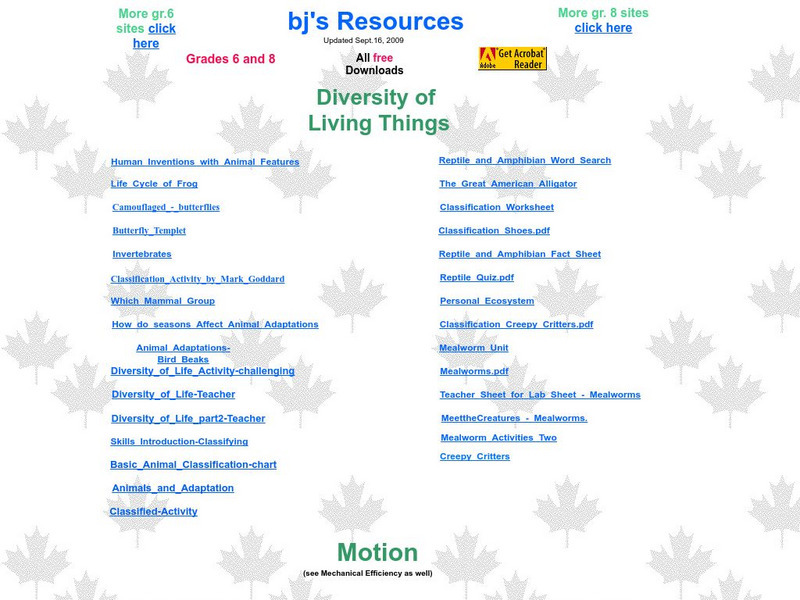Hi, what do you want to do?
Alabama Learning Exchange
Alex: Pendulums Swing Into Motion
This lesson will allow learners in groups to describe the relationship between energy, work, and force through the use of pendulums. The results will be reported through a graphing activity as well as a paragraph written and printed on...
Physics Classroom
The Physics Classroom: Newton's Laws
A four-lesson e-textbook covering topics in Newton's Laws. Tutorials include informational text,animations, interactive activities, and quick, interactive comprehension checks throughout the lessons.
Cornell University
Cornell University: Cornell Center for Materials Research: Friction
A collection of experiments where young scholars can learn about how friction works and affects the physical world. At the end, students design a tortoise to win by slowing it down using friction. Lesson includes explanation of the...
TeachEngineering
Teach Engineering: Launch Into Learning: Catapults!
Students learn about catapults, including the science and math concepts behind them, as they prepare for the associated activity in which they design, build and test their own catapults. They learn about force, accuracy, precision and...
PBS
Pbs Teachers: Balloon & Straw Experiment
Investigate air pressure, motion and the forces of air currents using a bendy straw, a balloon and a rubber band.
Texas Instruments
Texas Instruments: Spring Thing: Newton's Second Law
In this activity, students' use a force sensor and a motion detector to collect force and acceleration data for an object moving up and down hanging from a spring. They use the data to test Newton's second law, and to estimate the mass...
BBC
Bbc Schools: Ks2 Bitesize: Science: Physical Processes: Friction
Use your knowledge about friction to help Carrie get to the Invigatron before someone steals it. Following the activity, read more about friction and resistance, and then take a quick quiz to check for understanding.
PBS
Pbs Teachers: Rube Goldberg Invention Ii
Explore motion, force and energy by building a complicated contraption to pour milk into a glass.
TeachEngineering
Teach Engineering: Physics Tug of War
In this activity, students will learn about Newton's 2nd Law of Motion. They will learn that the force required to move a book is proportional to the weight of the book. Engineers use this relationship to determine how much force they...
TeachEngineering
Teach Engineering: Catapults!
Students observe the relationship between the angle of a catapult (a force measurement) and the flight of a cotton ball. They learn how Newton's second law of motion works by seeing directly that F = ma. When they pull the metal "arm"...
TeachEngineering
Teach Engineering: Newton Rocket Car
The purpose of this activity is to demonstrate Newton's third law of motion - which states that every action has an equal and opposite reaction - through a small wooden car. The Newton cars show how action/reaction works and how the mass...
Texas Instruments
Texas Instruments: Slow Down: Speed Up
In this activity, students' will use a motion detector to observe the effect of speeding up, slowing down, and moving at a constant rate on a Distance versus Time plot.
Science Education Resource Center at Carleton College
Serc: Exploring Newton's Second Law
Students conduct an experiment that will reinforce their understanding of Newton's Second Law. Using simple objects, students control force, mass, and acceleration, and how each is related to each other.
Science Education Resource Center at Carleton College
Serc: Newton's First Law (Inertia)
This activity provides learners an opportunity to investigate Newton's first law by observing inertia in a variety of experiments. Students will hypothesize on possible outcomes, write observations of what has happened, and apply...
Science Education Resource Center at Carleton College
Serc: Exploring Acceleration Through Vectors
The goal of this activity is to get students to think about what is happening when velocity and acceleration vectors point in different directions. The pictures, sentences, and cars used allow the students to picture each situation in...
Science and Mathematics Initiative for Learning Enhancement (SMILE)
Smile: Objects Race
In this lesson plan grab a slope and different objects. Roll the objects down the slope and record which is the fastest. Students analyze the features of the objects that make them slow or fast.
Hunkins Experiments
Hunkin's Experiments: Balance
Hunkin's Experiments is a group of simple cartoon illustrations of scientific principles. Some would work well in the classroom, but others have little value beyond entertaining students. All of the projects are easy to do. This pair of...
Other
Physics Quests
This resource links to many web-based activities which allow students to explore and examine physic principles and concepts on their own. Links to other good physics sites are also here.
Science Education Resource Center at Carleton College
Serc: Marble Stop
In this two-part lesson, students will discover that no matter what the shape of the track, the marble will rise to the same vertical height. They will begin to understand the concepts of gravity, motion, and force.
PBS
Pbs Kids: Design Squad Challenge: Confetti Launcher (Pdf) [Pdf]
Hands-on challenge to invent a device that will launch a huge cloud of confetti. Provides full list of materials with ideas on how to design, build, test, and redesign it if necessary. Activity focuses on the engineering design process...
McREL International
Mc Rel: Whelmer #33 Learning Activity: Density Balloon
A simple activity that investigates the effect of heat on the volume of a gas. The activity is presented in lesson plan format that meets NSES standards.
NASA
Nasa: Beginner's Guide to Aerodynamics
Includes exhaustive information and a wealth of activities pertaining to aerodynamics and the physics of flight.
My Science Site
Life Systems: Cells, Tissues, Organs
Extensive site for teachers provides some helpful resources that pertain to plant and animal cells. Includes a microscope diagram as well as plant, animal and pond labs. Also contains links to structures and mechanisms, matter and...
Museum of Science
Museum of Science and Industry, Chicago: Activities: Make and Fly a Helicopter
Print and cut out the template for the helicopter. Then experiment with adding and subtracting weight, or changing the shape of the copter or the blades to see what makes it fly best.







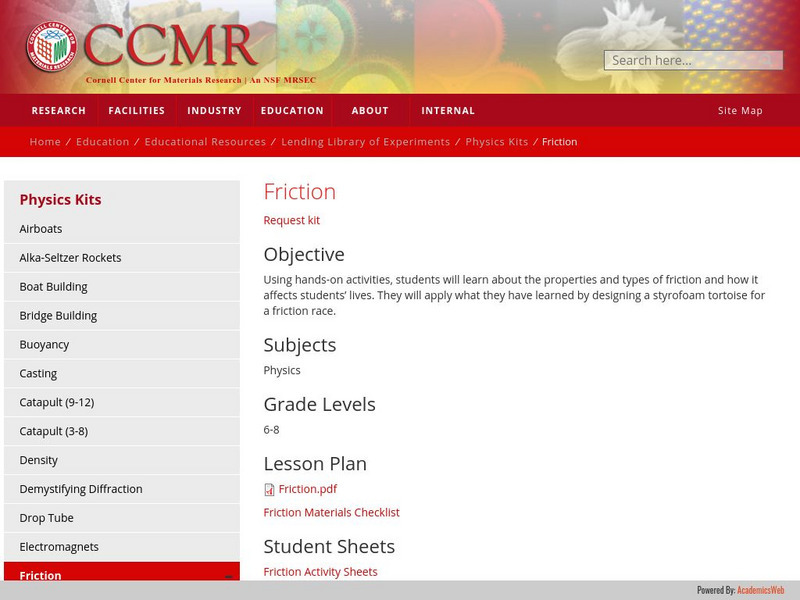
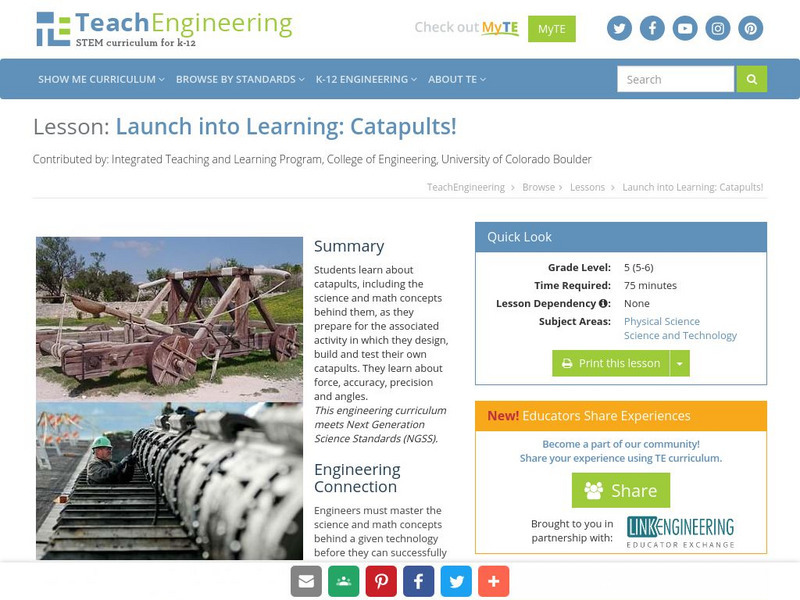

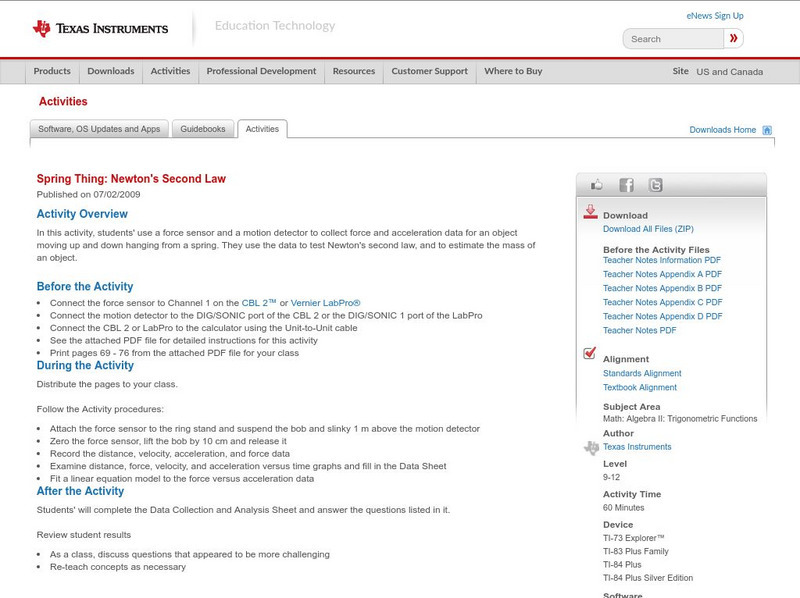



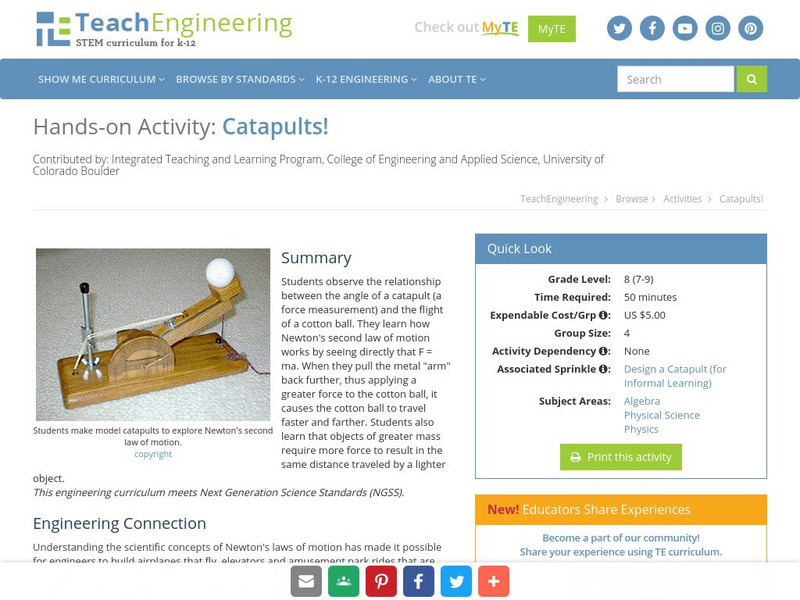


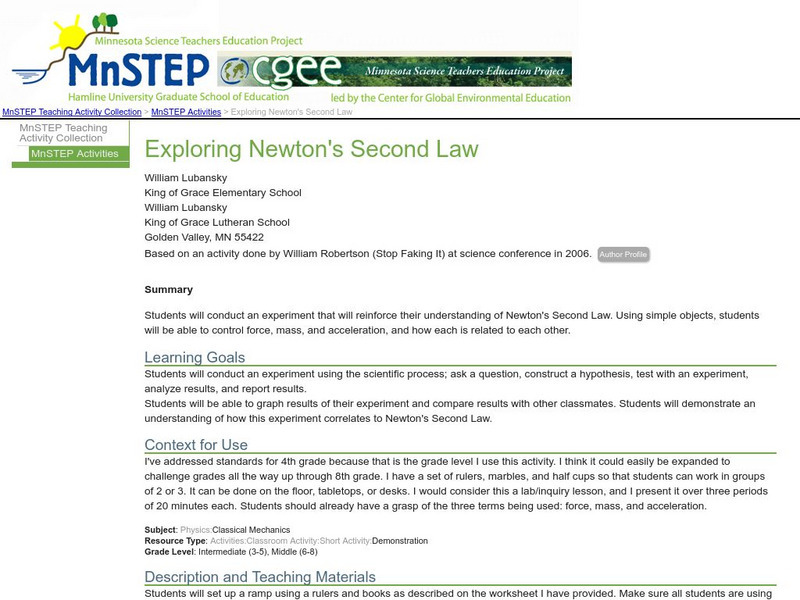
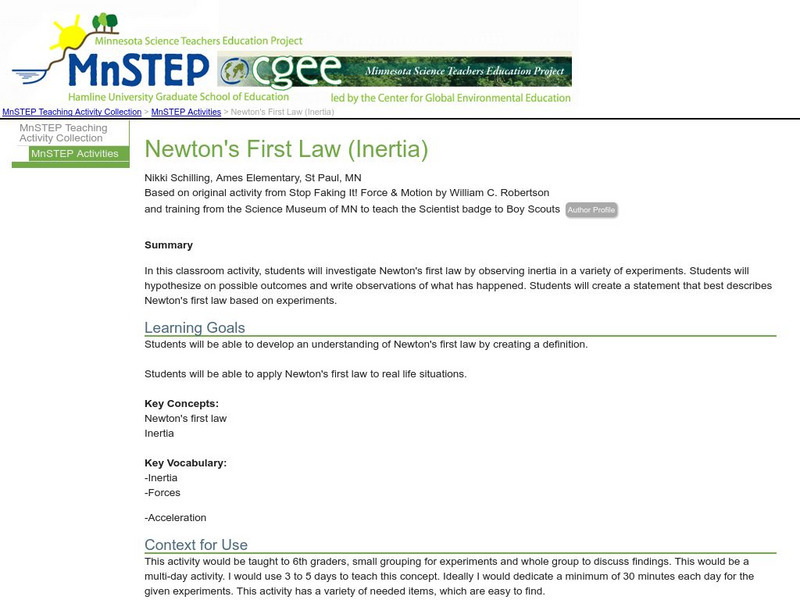





![Pbs Kids: Design Squad Challenge: Confetti Launcher (Pdf) [Pdf] Handout Pbs Kids: Design Squad Challenge: Confetti Launcher (Pdf) [Pdf] Handout](https://content.lessonplanet.com/knovation/original/39867-d984402dad72168ca09f2e3005c25b28.jpg?1661243856)

